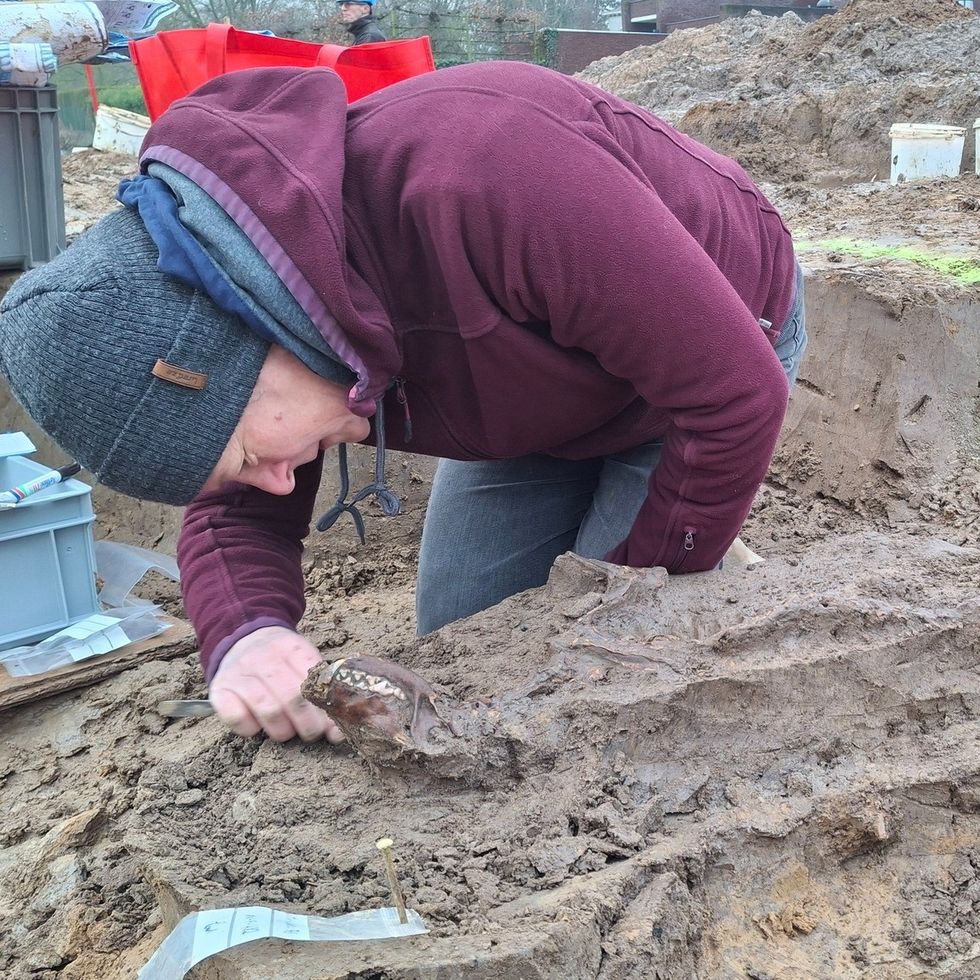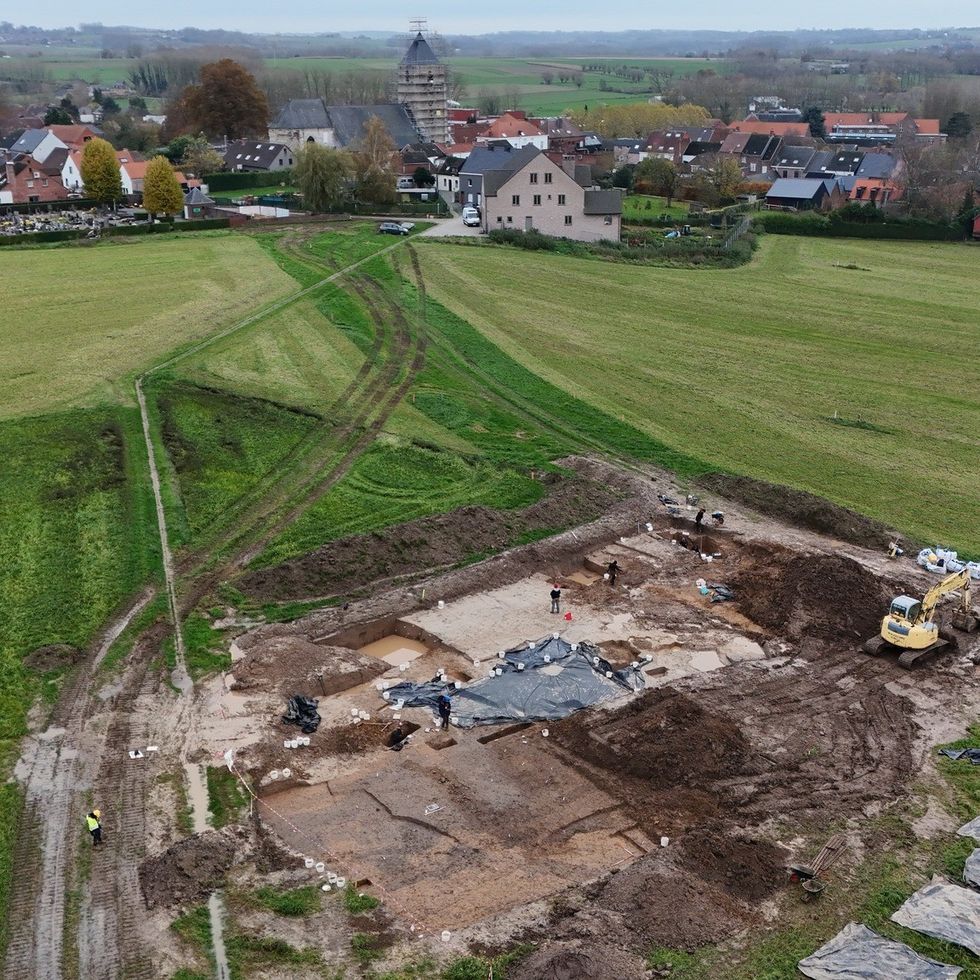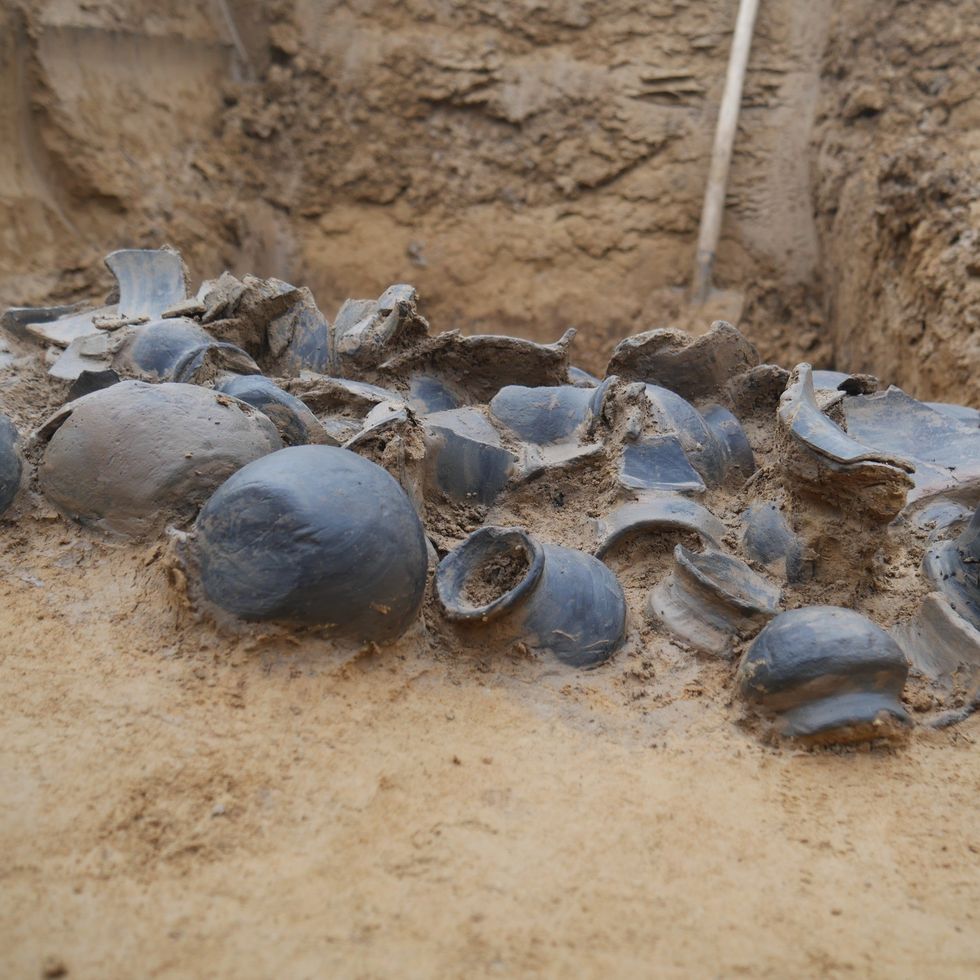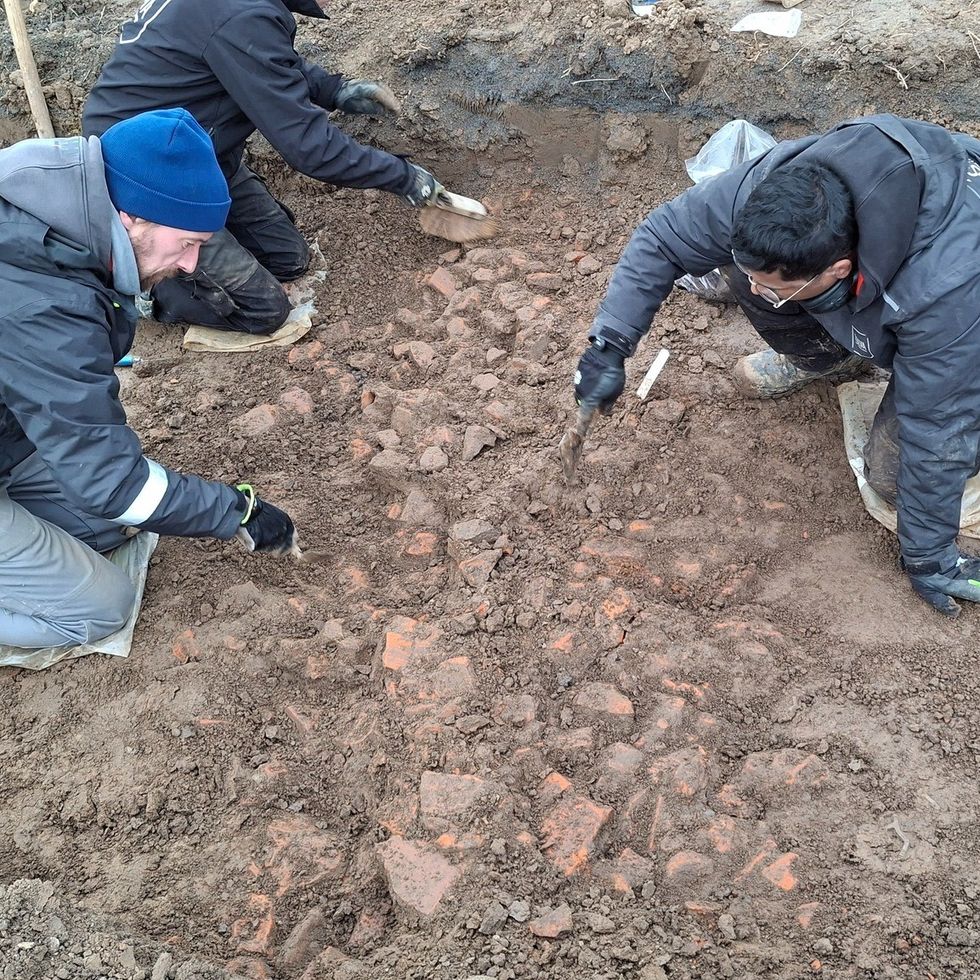The ancient dog was found with its mouth largely intact and several teeth still present, and offers rare insight into ancient Roman rituals
Don't Miss
Most Read
Trending on GB News
Archaeologists in Belgium have uncovered the remarkably well-preserved remains of an 1,800-year-old dog.
The ancient canine, discovered by the Belgian Government-affiliated Solva Archaeology Service, is believed to have been ritually sacrificed during Roman times.
The dog skeleton was found with its mouth largely intact and several teeth still present, offering rare insight into ancient Roman ritual practices.
The excavation took place at a former ancient Roman regional centre, known as a vicus, in the village of Velzeke in Flanders.

The dog skeleton was found with its mouth largely intact and several teeth still present
SOLVA DIENST ARCHEOLOGIE
Archaeologist Arne Verbrugge explained that the dog was discovered beneath a stone floor - which significantly contributed to its preservation.
"Because the dog was buried under a foundation of highly calcareous sandstone, the remains are preserved quite well," Verbrugge told Fox News.
This level of preservation is unusual, as most Roman-era bones in the region are typically "heavily decayed", he said.
Dogs played a significant role in various Roman ritual practices, according to Verbrugge.
The archaeologist explained that dogs were sometimes sacrificed to "purify land and houses" before construction began, as documented in the works of Roman scholar Varro.
MORE ROMAN BREAKTHROUGHS:

The excavation took place at a former ancient Roman regional centre, known as a vicus, in the village of Velzeke in Flanders
SOLVA DIENST ARCHEOLOGIE
"For the building sacrifice of Velzeke, it is likely that before they wanted to erect the building, they first 'purified' the site," Verbrugge said.
Dogs were also considered "guardians" of human graves and were ritually killed to guide the deceased to the afterlife.
This discovery represents the first building-related dog sacrifice found in Flanders, though similar ritual practices have been documented in both the UK and France.
"Stone foundations are not common in the Roman period for this region, and they testify to a certain status of the building," Verbrugge noted.
Such foundations were typically reserved for villas and public buildings with "military, administrative or religious functions", he said.
The exact breed of the dog remains unknown, as Verbrugge pointed out that creating specific dog breeds is "a fairly recent practice".
The remains will undergo further testing after being washed to potentially determine "cause of death, diseases, age, gender and the like".
LATEST ARCHAEOLOGY UPDATES FROM GB NEWS:

Archaeologists also discovered numerous other artefacts at the site - but Verbrugge said these were largely 'settlement waste'
SOLVA DIENST ARCHEOLOGIE

The discovery represents the first building-related dog sacrifice found in Flanders
SOLVA DIENST ARCHEOLOGIE
Archaeologists also discovered numerous other artefacts at the site, including another dog's bones, the remains of a young pig, approximately 33 intact drinking cups and a bronze bowl.
But these additional finds were characterised by Verbrugge as settlement waste rather than ritual offerings.
"The finds testify to a rich culture at this place, based on, among other things, imported luxury pottery, jewellery and even some silver coins," he said.
The archaeologist noted evidence of artisanal activities, with many pits containing slag or fragments of oven walls.
"At one point, ritual or religious activities were carried out on part of the excavation site," Verbrugge added.









